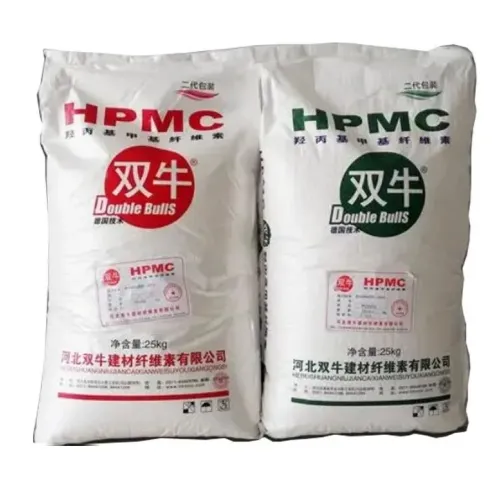Warning: Undefined array key "file" in /home/www/wwwroot/HTML/www.exportstart.com/wp-content/themes/1198/header.php on line 7
Warning: Undefined array key "title" in /home/www/wwwroot/HTML/www.exportstart.com/wp-content/themes/1198/header.php on line 7
Warning: Undefined array key "title" in /home/www/wwwroot/HTML/www.exportstart.com/wp-content/themes/1198/header.php on line 7
- Afrikaans
- Albanian
- Amharic
- Arabic
- Armenian
- Azerbaijani
- Basque
- Belarusian
- Bengali
- Bosnian
- Bulgarian
- Catalan
- Cebuano
- China
- China (Taiwan)
- Corsican
- Croatian
- Czech
- Danish
- Dutch
- English
- Esperanto
- Estonian
- Finnish
- French
- Frisian
- Galician
- Georgian
- German
- Greek
- Gujarati
- Haitian Creole
- hausa
- hawaiian
- Hebrew
- Hindi
- Miao
- Hungarian
- Icelandic
- igbo
- Indonesian
- irish
- Italian
- Japanese
- Javanese
- Kannada
- kazakh
- Khmer
- Rwandese
- Korean
- Kurdish
- Kyrgyz
- Lao
- Latin
- Latvian
- Lithuanian
- Luxembourgish
- Macedonian
- Malgashi
- Malay
- Malayalam
- Maltese
- Maori
- Marathi
- Mongolian
- Myanmar
- Nepali
- Norwegian
- Norwegian
- Occitan
- Pashto
- Persian
- Polish
- Portuguese
- Punjabi
- Romanian
- Russian
- Samoan
- Scottish Gaelic
- Serbian
- Sesotho
- Shona
- Sindhi
- Sinhala
- Slovak
- Slovenian
- Somali
- Spanish
- Sundanese
- Swahili
- Swedish
- Tagalog
- Tajik
- Tamil
- Tatar
- Telugu
- Thai
- Turkish
- Turkmen
- Ukrainian
- Urdu
- Uighur
- Uzbek
- Vietnamese
- Welsh
- Bantu
- Yiddish
- Yoruba
- Zulu
Aug . 07, 2024 18:00 Back to list
Exploring the Properties and Applications of Citric Acid Monohydrate in Various Industries
Citric Acid Monohydrate A Multifaceted Compound
Citric acid monohydrate, a crystalline compound, is a derivative of citric acid, which is a natural organic acid found in citrus fruits like lemons and oranges. It is widely recognized for its diverse applications across various industries, including food and beverage, pharmaceuticals, and cosmetics. Its chemical formula, C6H8O7·H2O, signifies that it is citric acid combined with one molecule of water, making it a hydrated form. This intricate balance of composition not only enhances its stability but also influences its functional properties.
In the food industry, citric acid monohydrate serves as an essential additive, playing a pivotal role as a flavoring agent and preservative. Its characteristic tart flavor enhances the taste profile of numerous products, including soft drinks, candies, and sauces. Additionally, it acts as an acidulant, lowering the pH of food products, which inhibits microbial growth and extends shelf life. The compound’s ability to chelate metals is also of importance; it binds to metal ions, thereby preventing oxidation and preserving the quality of the food.
Citric Acid Monohydrate A Multifaceted Compound
In the realm of pharmaceuticals, citric acid monohydrate is utilized to enhance the solubility of certain medications, thereby improving bioavailability. Its buffering capacity is crucial in formulating syrups and oral solutions, ensuring both stability and optimal pH for effective action. The compound is recognized for its role in various dosage forms, including both over-the-counter and prescription medications, rendering it an indispensable component in therapeutic formulations.
citric acid monohydrate pubchem

The cosmetic industry also benefits from citric acid monohydrate, primarily due to its exfoliating properties. It is often included in skincare products, such as peels and scrubs, where it aids in the sloughing off of dead skin cells, promoting a clearer and more radiant complexion. Additionally, it helps maintain the pH balance of skincare formulations, ensuring stability and efficacy.
Despite its versatility, it is important to recognize that citric acid monohydrate should be used within recommended guidelines. Overconsumption can lead to adverse effects, including gastrointestinal discomfort. In industrial applications, appropriate handling measures should be taken to ensure safety, as excessive dust from powdered forms may pose respiratory risks.
Research continues to explore the potential applications of citric acid monohydrate, delving into the possibilities within bioplastics and green chemistry. Its biodegradable nature makes it an attractive candidate for sustainable practices, highlighting its role in the development of eco-friendly materials.
In conclusion, citric acid monohydrate exemplifies a compound that transcends its basic chemical identity, presenting remarkable versatility across various sectors. Its applications span food preservation, pharmaceutical formulation, and cosmetic enhancement, evidencing its pivotal role in modern industries. As innovation continues, citric acid monohydrate stands out not just as a functional ingredient but as a promising contributor to sustainable practices and health-focused solutions. With ongoing research, the future may unveil even more properties and applications, solidifying its status as an indispensable compound in our daily lives.
Latest news
-
2025 European Fine Chemicals Exhibition in Germany
NewsMay.13,2025
-
2025 New York Cosmetics Ingredients Exhibition
NewsMay.07,2025
-
Zibo will host the 2025 International Chemical Expo
NewsApr.27,2025
-
2025 Yokohama Cosmetics Raw Materials and Technology Exhibition
NewsApr.22,2025
-
2025 India Mumbai Fine Chemicals Exhibition
NewsApr.18,2025
-
Nanjing will host the 2025 Yangtze River Delta International Chemical Industry Expo and the National Chemical Industry Conference
NewsApr.15,2025

